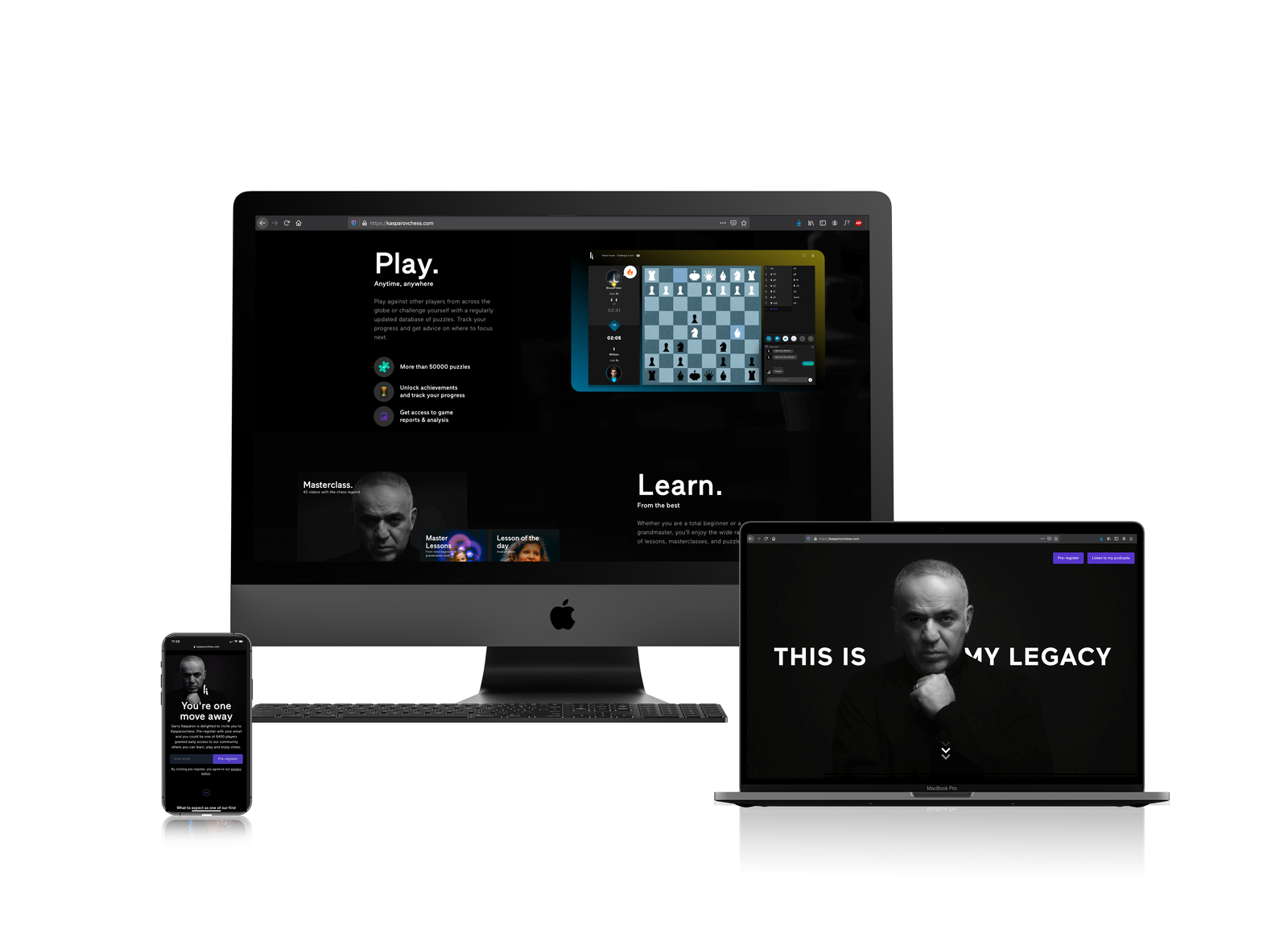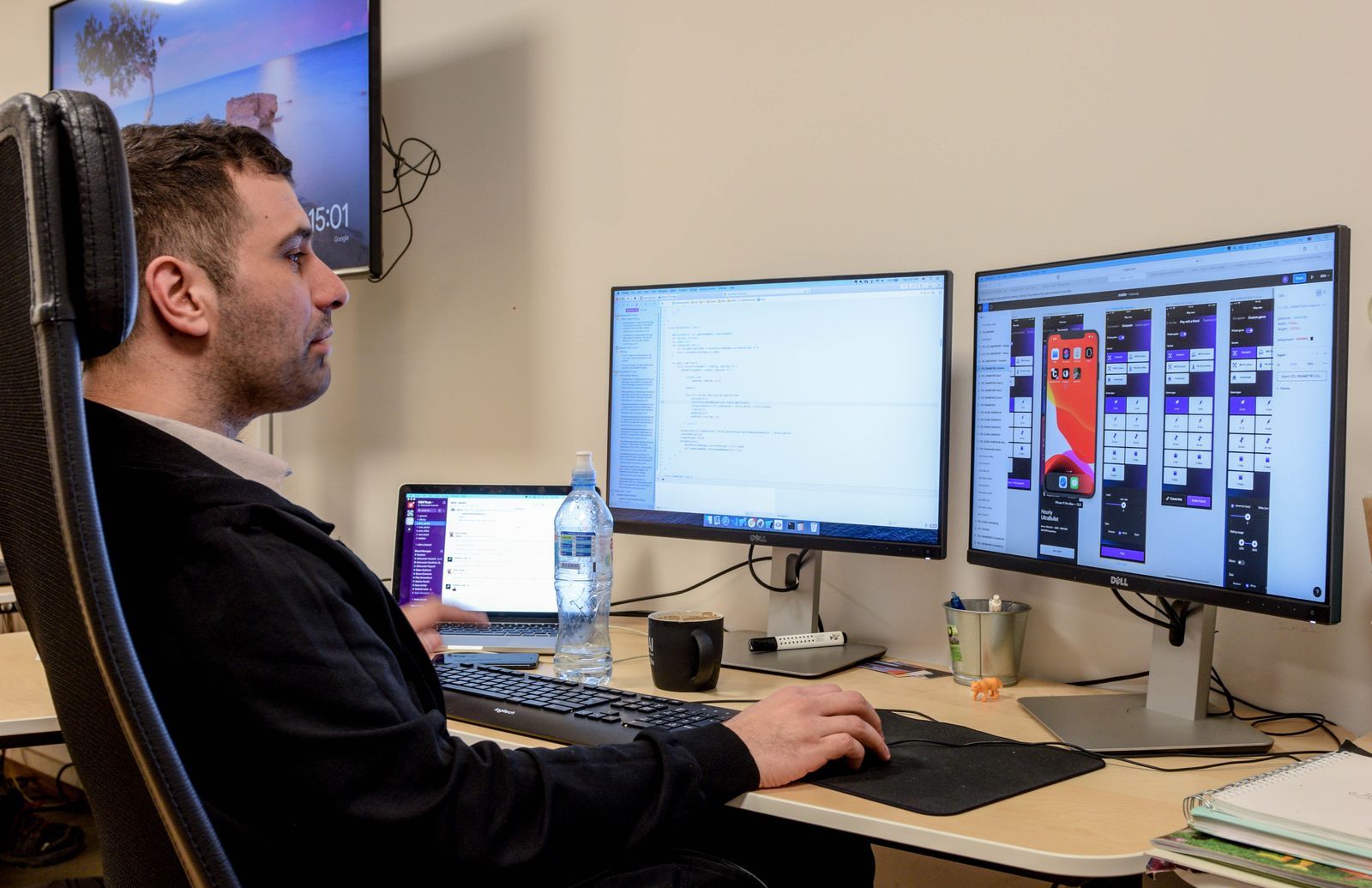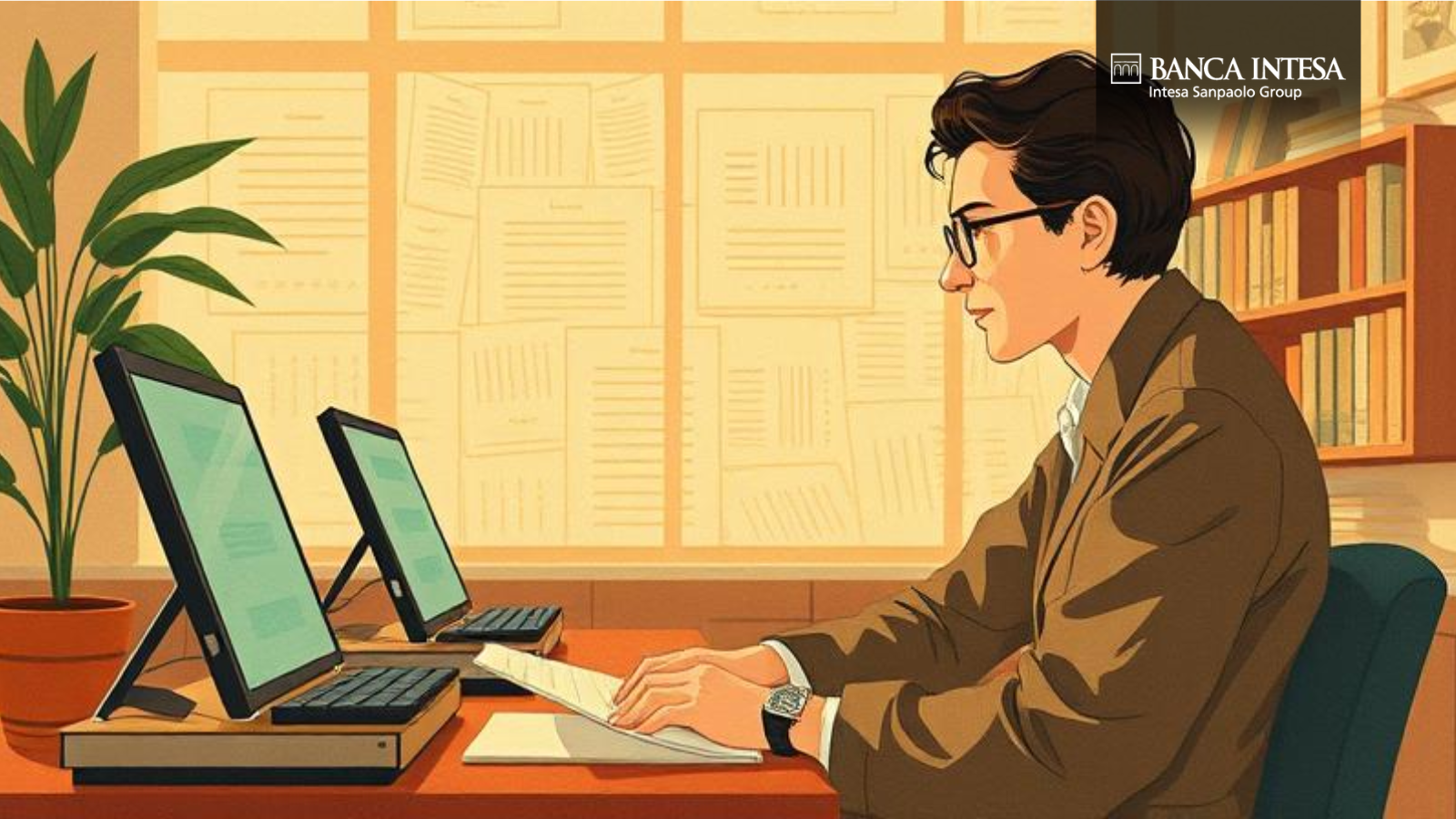
Can a small team really deliver on a global project?
It is known that domestic IT agencies in their portfolio have increasingly large, global clients for which they develop software and applications, proving that the expertise and dedication of the team are much more significant than how many members they have.
But what does working on a big project really look like from the inside?
We give you the answers firsthand.
Our little pack, the media conglomerate, and Garry Kasparov
Why we didn't start this article like this: "Belgrade OSM launched the first social chess platform, Kasparovchess, in collaboration with the famous Garry Kasparov."? - Because in addition to wanting to brag about our new project, as young people would say we've passed that game, we want you to get to know the team in charge of creating it.
Vladimir (iOS developer), Aleksandar (iOS developer), and Sabrina (project manager) will give you first-hand answers to the above questions "if, what, and how".
But let's just take a brief look at the participants of this game, excuse me - project:
- Garry Kasparov – chess legend, grandmaster, and world chess champion. He participated as a consultant for the popular Netflix series “The Queen’s Gambit”. After a successful multi-decade chess career, Kasparov came up with the idea of leaving a kind of legacy behind, the platform Kasparovchess.
- Vivendi – a French media conglomerate that owns companies such as Universal Music Group, Groupe Canal +, Havas, Dailymotion, and the like.
- OSM - a "pack" that successfully combines programming, design, and marketing in order to provide its clients with the desired results and (un)expected success. Or to simplify - an agency for the development of websites, applications, and software.
What exactly is Kasparovchess?
Kasparovchess is a platform where legendary chess grandmasters share their tricks and tips for free. A place where you can find a handful of documentaries, podcasts, articles, and interviews with chess experts. Not only that - Kasparovchess is a place where users can perfect their game through many quizzes and puzzles, specially adapted for their level of play. After that, users can challenge a friend or any user of the platform to a game of chess.

How do you get clients like Garry Kasparov? Why was the small OSM from Belgrade, Serbia chosen to be the creator of such an important project?
"One of the investors of Kaspar's project is the globally known media company Vivendi. After successful cooperation on a smaller project, the Vivendi team decided to trust the development of Kasparovchess, from scratch, to our small Belgrade team. Although it is a big project - the commitment and proven expertise of our OSM members are what decided that they should be in charge of realizing Kaspar's idea."- explains Vojin Stanojević, founder of OSM.
Small team, big wins
Developing a platform like Kasparovchess requires people with different skills, to do a (very) large number of tasks in a short period of time - which at first glance is something only a larger team can tackle.
However, OSM's team in charge of Kasparovchess had a really small number of people from the beginning, fifteen to be exact.
Was it a challenge to work on such a large project with limited resources, primarily human-wise?
Aleksandar: "Actually, I consider the fact that the team was small, compact, that people already cooperated or knew each other, as an important component of our success. Specifically – the iOS team faced a major challenge when implementing SWIFT UI technology. My good cooperation with my colleague is what decided that we are so proud of the result. We easily agreed, fit in, shared tasks among ourselves, knew who was relevant for which area, and the like."
Sabrina: "I think that was one of the biggest challenges for me. To fit everything the client wants us to do, sometimes with unrealistic expectations, and on the other hand, to make sure that the team is not overloaded and "burnt out"."
What do individuals need to possess in order to mesh so well as a team?
Aleksandar: "In the first place is certainly the knowledge and ability that an individual possesses, but perhaps even equally important is how that person integrates into the team. The fact that some of us knew each other before working on Kasparovchess is a big plus, but it was also important that the new members fit in well. In this connection, it is inevitable to mention the crucial role of the project manager during this process."
Vladimir: "I must add that our team, no matter how small it was, was the one that gave various initiatives and proposals for improving the platform. And we wouldn't be able to do that if we didn't get along so well. We knew that Denis (frontend developer) is a big chess fan, so his knowledge was very helpful for us in developing solutions closely related to chess itself."
Sabrina: "I absolutely agree with the iOS colleagues that expertise and knowledge are number one for team alignment, and that it is a big plus to know colleagues from before and an even bigger plus is collaboration on previous projects. What is the greatest value of this team is all these great people I work with, with whom we easily agree on everything, we have an honest relationship, above all without ego, to understand each other, to help each other if something gets stuck and to make an effort to get answers to questions that are necessary for us to continue doing our work without interruption."

Do you think that this type of project is still easier to do within a big corporation?
Aleksandar: "In smaller teams, there are certainly greater limitations in terms of budget and time. In corporations, projects usually last much longer, there are a lot more people working on them, so the pressure is certainly less. However, from my point of view, that way work can become monotonous, and inspiration gets lost. As much as there is more stress in a smaller team, the mentioned limitations lead people to be more creative, "warmer", excited about the project."
Vladimir: "I think that another advantage of a small team is that everyone as an individual must try to do his job as best as he can, because there is simply no one else in his place. Not only that, it is important that everyone is aware of other people and what they are doing. For example, my goal was that the development of the iOS application follows the dynamics of colleagues working on Android and web versions. We found each other's mistakes but also worked on correcting them, and I consider that an important reason why we were able to carry the entire development of the project so well, in a very short period of time (about a year and a half). I even think that as a big team, it would be difficult to organize and adapt to all the obstacles we encountered."
Sabrina: "From my previous experience, when it comes to implementing new decisions, procedures, changes and similar, it is definitely better to work in a smaller team, because everything goes much faster that way, and therefore if in practice we notice that the current approach is not appropriate and that we can improve it, and that change happens much faster than in corporations."
The pandemic has inevitably affected all businesses and projects. How did you cope with the changes caused by the lockdown: working from home, and different communication with the team and clients?
Vladimir: "At OSM, we highlight the importance of working together from the office, we try to make it nice for all of us there, and we also socialize outside of working hours. So working from home was a really big change. However, it has awkwardly led us all to become much more productive."
Aleksandar: "In our case, no major changes were really felt, precisely because we were previously well aligned and compatible. Even a pandemic cannot disrupt a team if it is based on sound foundations."
As already mentioned, the role of the project manager is crucial for the small team to really deliver all that the big project entails. How to successfully organize team members by skills and affinities?
Sabrina: "Each team has members of different seniority and based on the soft & professional skills that the team members possess, the team can already be organized so that the tasks are easily divided. However, in every team there are colleagues who are a little more proactive and ambitious than others, so it happens that some team members get more challenging tasks than before, of course with prior analysis and an available mentor during the development of some functionality or testing. It is important to give the opportunity and then after the work is done analyze the good sides, as well as what can be further improved. That's how juniors became mid-level, and mid-level seniors, with opportunities, mentoring and feedback for a job well done, as well as for what can be further improved."
Let's go back to the question from the beginning - yes, a small team can indeed deliver a large, global project very successfully. The key is in individuals who must possess the necessary knowledge but also be team players in the true sense of the word.


